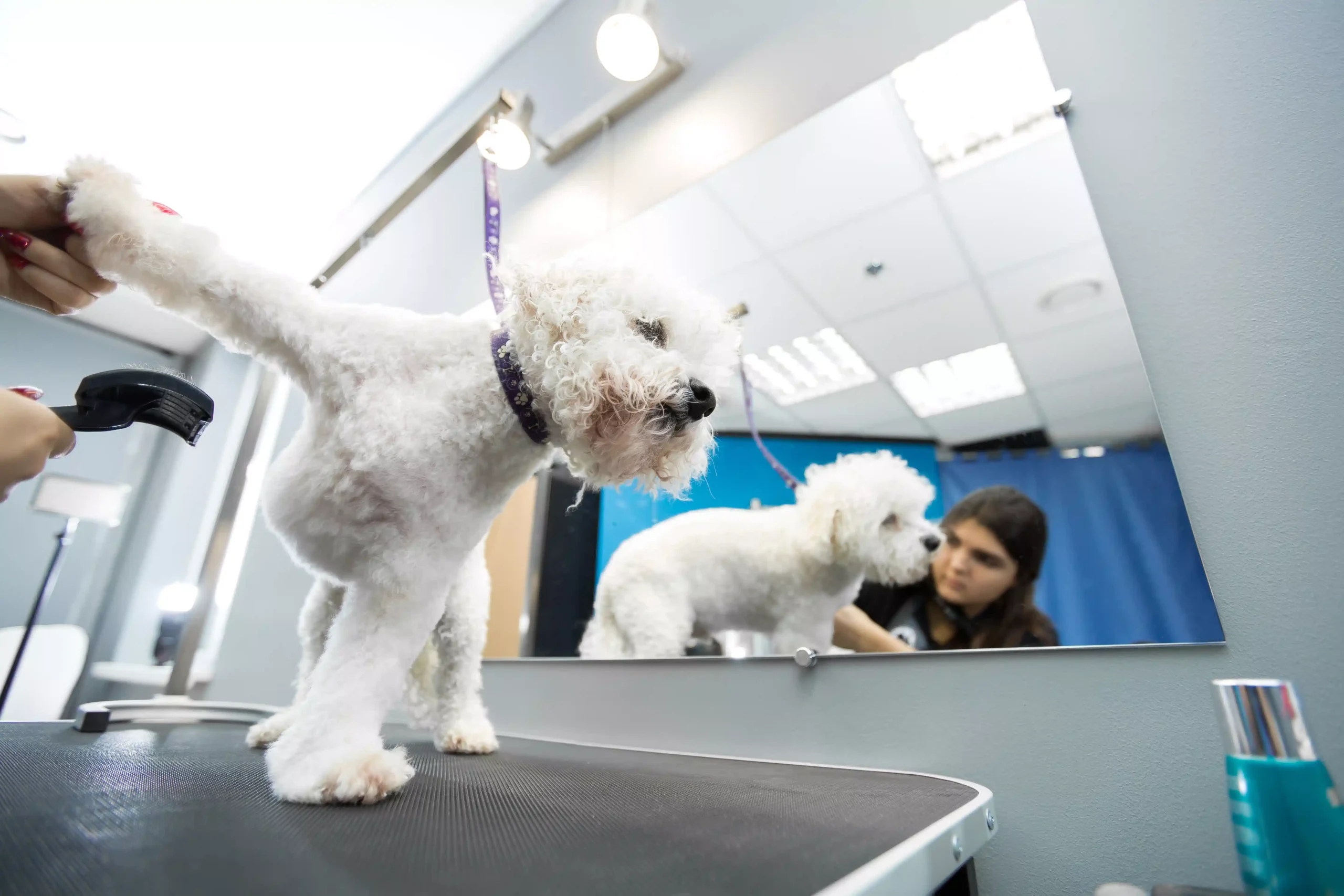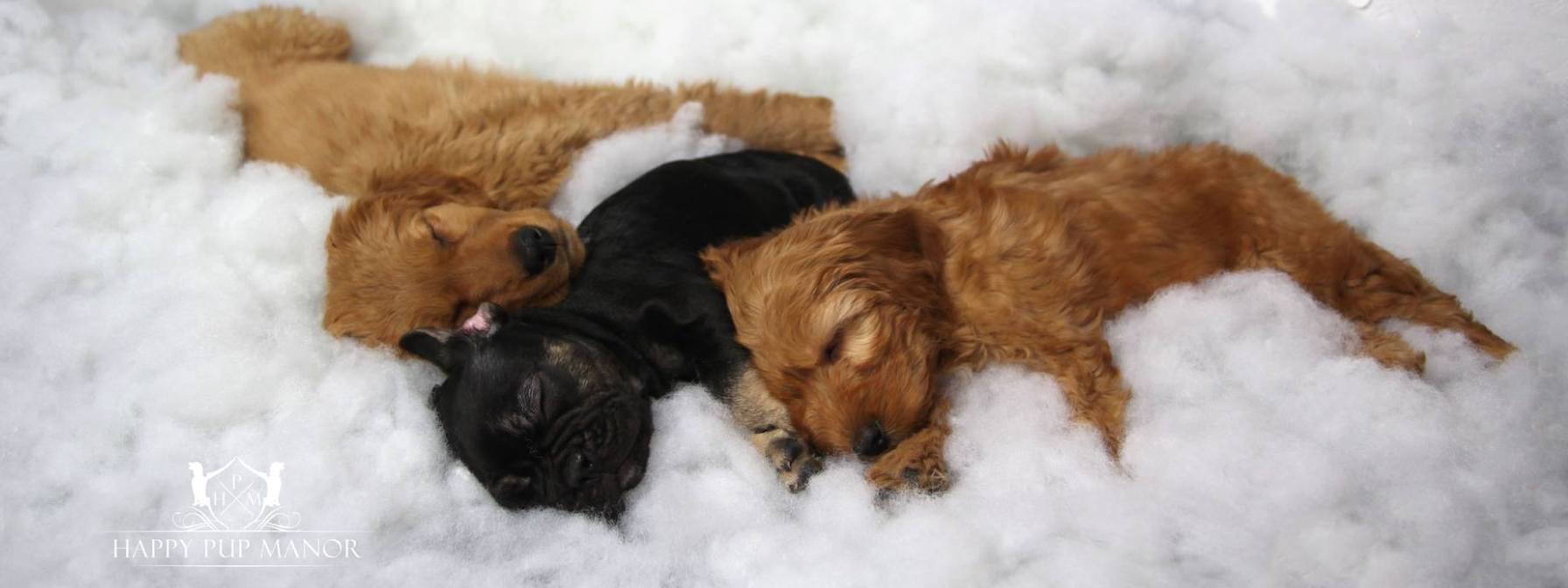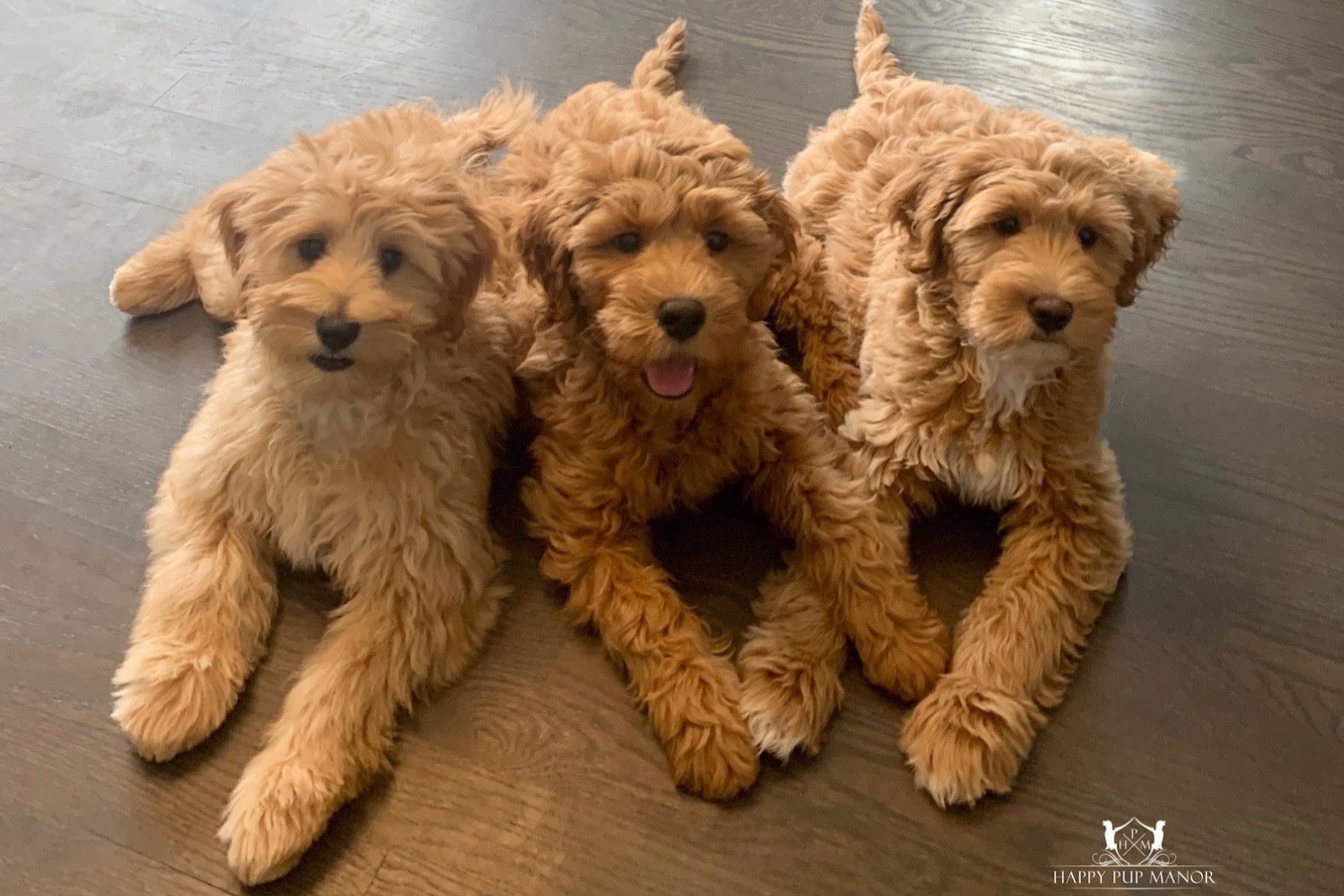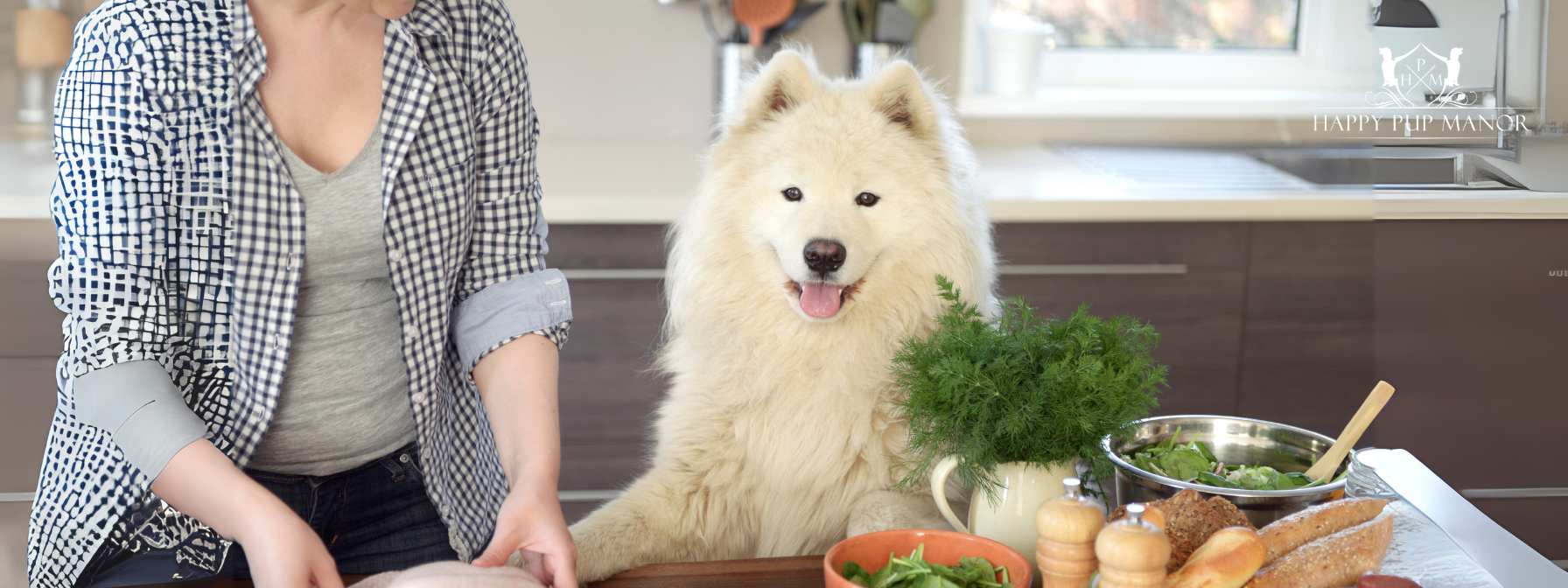How Do I Stop My Puppy Crying at Night?

How Do I Stop My Puppy Crying at Night?
Just like babies, hearing your puppy cry at night and call for you is heartbreaking. While you might initially comfort your puppy every time he cries, this approach can lead to sleep deprivation and reinforce negative behavior. Both you and your puppy need consistent sleep for health and happiness.
It’s normal for your puppy to cry at first since it has undergone many changes—from being separated from its mother and siblings to being in an unfamiliar location. Other puppies may also need to go outside while others are bored. Some other puppies cry and whine, thinking that if they do so, they can get out of their crate. Puppies cry for various reasons, and it’s important to identify the reason for their crying so you can help and do the right thing.
As a puppy parent, you might worry that your puppy is hurt or sad whenever he cries. Identifying the reasons for this can be puzzling, especially since your pup cannot communicate with you yet.
Don’t worry! If your puppy cries at night, Happy Pup Manor has amazing tips to make it easier for you and your little ball of fur!
Addressing Your Puppy’s Immediate Needs
Theoretically, if your puppy starts to whine at night, you should let it cry it out. Otherwise, you teach them that barking means they get out of the crate. Before long, your puppy will learn that all it needs is to cry, and he will be let out.
However, this is because you have already ensured you have provided your puppy with everything it needs. If you are a new puppy owner, expect your puppy to cry during the first few nights, and that’s ok. You are still getting to know your pup, and your pup is also still adjusting to everything around him.
Here are steps that you can follow to help calm your crying puppy:
Provide a Comforting Presence — Since your puppy is still a baby, make sure you go to him and reassure him that you are still there. Spend a few minutes with him to help ease loneliness and anxiety.
 Check Your Puppy’s Needs — One of the things you should check is if your puppy has access to water and if it has a comfortable sleeping area. Some puppies might get too cold at night, especially if he was used to sleeping with their mom and siblings, so make sure they have blankets to keep them warm. Many young pups love the Snuggle Puppy stuffed toy with a pulsing heartbeat that helps ease anxiety.
Check Your Puppy’s Needs — One of the things you should check is if your puppy has access to water and if it has a comfortable sleeping area. Some puppies might get too cold at night, especially if he was used to sleeping with their mom and siblings, so make sure they have blankets to keep them warm. Many young pups love the Snuggle Puppy stuffed toy with a pulsing heartbeat that helps ease anxiety.
Check for Elimination Needs — If the puppy’s crying persists, he might need to relieve himself. Puppies have limited bladder control, so take it as a sign that he is letting you know he needs to pee instead of just doing it on his bed. Let your puppy out and direct him outside or to his potty area. Once he is done, put your puppy back in his crate so he knows he needs to get back to sleep. Don’t play with him as this might stimulate him, and might think it’s fine to play even late at night.
 Give a Gentle, Soothing, and Positive Environment —Sometimes, your puppy needs comfort and reassurance. Talk to your puppy calmly and pet it gently so it knows you are still there. You can help alleviate your puppy’s crying by creating a positive environment using an Echo Dot and play some soothing sounds.
Give a Gentle, Soothing, and Positive Environment —Sometimes, your puppy needs comfort and reassurance. Talk to your puppy calmly and pet it gently so it knows you are still there. You can help alleviate your puppy’s crying by creating a positive environment using an Echo Dot and play some soothing sounds.
Preparing Your Puppy For Bedtime
While the steps above are effective ways to make your puppy stop crying, it is best to prepare him for bedtime so he won’t have to cry every night.
Choose The Right Location — Place your puppy’s bed in an area in your home where he can rest and have some privacy. Areas like the kitchen and near doorways, with high foot traffic and noise, will wake your puppy up and make it fussy whenever it senses someone moving about.
 Pick the Right Bedding — Choose a soft and cozy bed that’s specifically designed for puppies. Puppy Beds are the right size and will comfortably accommodate your puppy while having enough space to stretch out. If you already have a dog bed for a bigger dog, you can put some blankets on it so your puppy will be snug and cozy. Take note to get bedding that is washable and easy to clean.
Pick the Right Bedding — Choose a soft and cozy bed that’s specifically designed for puppies. Puppy Beds are the right size and will comfortably accommodate your puppy while having enough space to stretch out. If you already have a dog bed for a bigger dog, you can put some blankets on it so your puppy will be snug and cozy. Take note to get bedding that is washable and easy to clean.
 Check the Temperature and Ventilation — Aside from warm and cozy bedding, the overall temperature should be just right, not too hot or cold2, as this can make it hard for your puppy to sleep. Proper ventilation is also important so your puppy can breathe easily. If you plan to use a crate cover, make sure that it has breathable fabric that won’t inhibit air circulation and cause the inside of the crate to be too warm.
Check the Temperature and Ventilation — Aside from warm and cozy bedding, the overall temperature should be just right, not too hot or cold2, as this can make it hard for your puppy to sleep. Proper ventilation is also important so your puppy can breathe easily. If you plan to use a crate cover, make sure that it has breathable fabric that won’t inhibit air circulation and cause the inside of the crate to be too warm.
Place in a Safe Area — Make sure you puppy-proof the sleeping area by removing potential hazards like toxic plants, electrical wirings, or small objects your puppy might eat. If your puppy tends to wander around, opt to place him in a closed crate.
Create a Positive Space — Some puppies may have separation anxiety or seek the warmth of their mother and siblings. As such, try to make his sleeping area a place where he would feel safe. If you have a piece of clothing from your puppy’s mother, you can place it in his bed. You can also put his favorite toys or even your own clothes so he knows you are there.
Choose a Dimly-lit Area —To help your puppy sleep better, place his bed and crate in a dimly lit area. Avoid placing him near bright lights or windows, where changes in lighting can wake him up.
Assess Your Puppy’s Eating Schedule — Determine if your puppy’s eating schedule is too close to bedtime. Ideally, he eats a few hours before sleeping to give enough time for him to relieve himself first and expel extra energy.
Establish a Routine —Make sure your puppy has a routine or schedule that he follows every day, including feeding time, nap time, playtime/ exercise, and potty time. Having predictability through a routine will not only train your puppy but also help alleviate stress and anxiety since your puppy knows what will happen next.
Ensure Plenty of Exercise —As part of establishing your puppy’s routine, ensure that your puppy can play and use his energy. Puppies are very energetic and excited, which is why they are unable to sleep easily if they are still energized. A tired puppy will be able to sleep better and longer.
Practice Gradual Adjustment Throughout the Day — If your puppy tends to cry when being left alone, try practicing leaving him alone for short periods of time during the day. Show your puppy that even if he can’t see you, he is not alone, and you will be back for him. Your puppy needs to have the confidence and trust that you are still there.
Using Calming Techniques for Better Sleep
Creating a peaceful environment for your puppy can significantly reduce nighttime crying. Incorporate relaxation techniques such as playing soft music or using aromatherapy to calm their nerves. A dimly lit room and a cozy blanket can mimic the comfort of their mother’s presence. For puppies struggling with separation anxiety, items like a Snuggle Puppy with a heartbeat or your worn clothing can provide reassurance.
Consistent bedtime routines are also effective. Gentle activities like progressive muscle relaxation for pets or quiet time before bed can release pent-up energy. These calming techniques not only improve your puppy’s mood but also promote restful sleep for you and your furry companion.
What If My Puppy Still Cries?
If you have tried the tips above and still find your puppy crying at night for weeks, it is time to move on to the next step. It is not wise for you and your puppy to not get enough sleep at night because of the endless cries and whines.
Consult Your Veterinarian
It is wise to visit your vet when your puppy keeps crying, as there might be an underlying health issue. Make sure you take notes of your observations to discuss this during your vet visit, including the intensity and frequency of your puppy’s crying episodes. These will be very helpful so your vet can better understand what your puppy is doing.
Your vet will conduct examinations to identify potential health issues and then provide a professional diagnosis and recommendation on what measures you can take to address your puppy’s crying. These can range from prescribing medications to making dietary changes.
Consider Puppy Boarding
We understand that sometimes it can be very tiresome when your puppy won’t stop crying, especially if you also have a long day and want to rest. For this reason, you should consider a puppy boarding program where your puppy will be given proper care and training.
 At Happy Pup Manor, we love helping both puppies and their owners. Our skilled and professional trainers guarantee to stop your puppy from crying at night by putting them in an obedience training program and fostering a place of warmth and comfort like your home. What’s great about this is that in no time, your puppy will no longer cry at night and will welcome you each morning with happy smiles and jumps.
At Happy Pup Manor, we love helping both puppies and their owners. Our skilled and professional trainers guarantee to stop your puppy from crying at night by putting them in an obedience training program and fostering a place of warmth and comfort like your home. What’s great about this is that in no time, your puppy will no longer cry at night and will welcome you each morning with happy smiles and jumps.
If you are curious how puppy boarding can help end your puppy’s cries, contact us now so we can further discuss and create a program for you and your pup!











